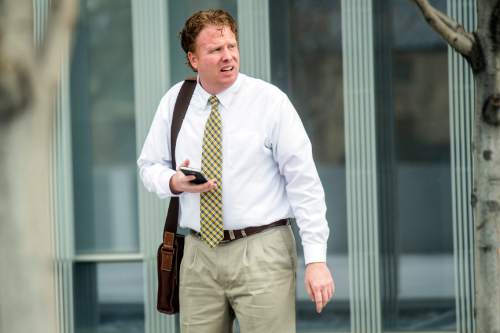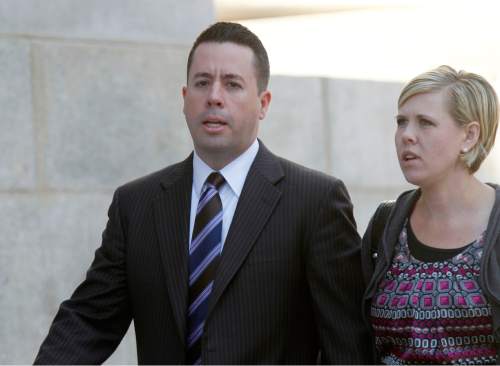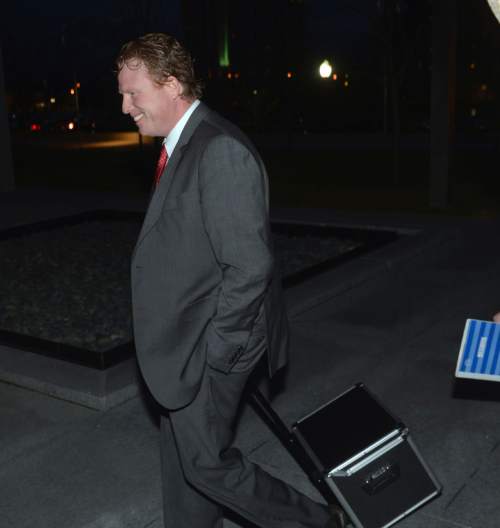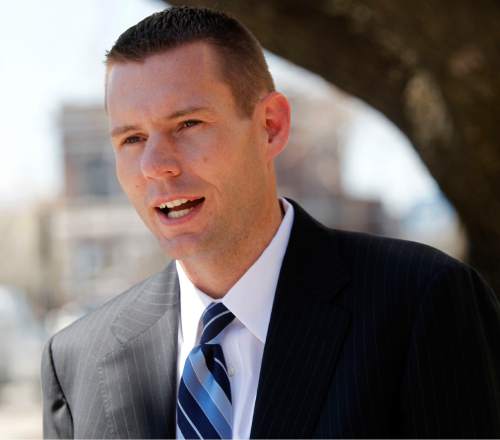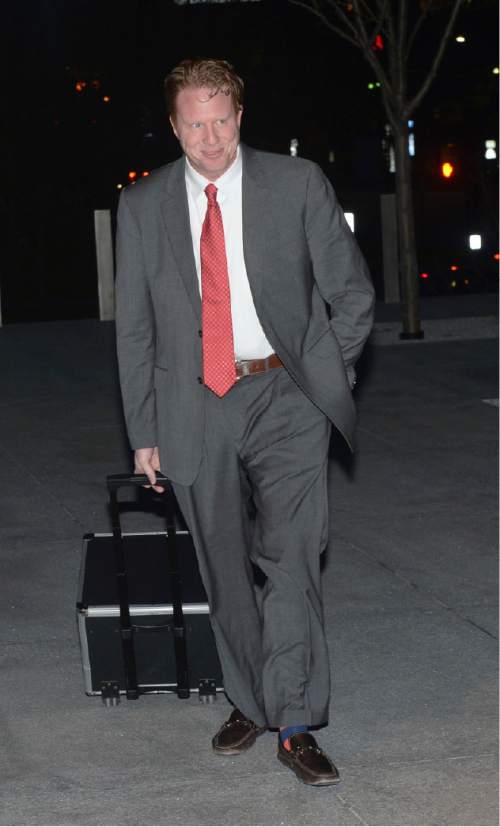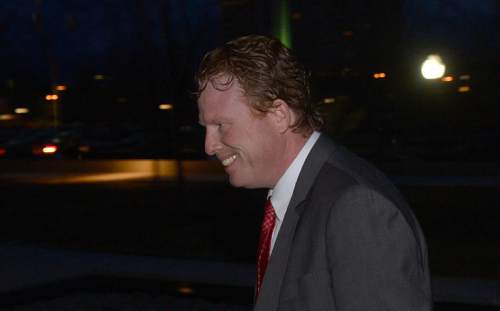This is an archived article that was published on sltrib.com in 2016, and information in the article may be outdated. It is provided only for personal research purposes and may not be reprinted.
With jury deliberations in the federal court trial of Jeremy Johnson threatening to stretch into a second week, the presiding judge issued an order Thursday that restricts how jurors can be approached for comment and areas they can talk about after the case is completed.
The jury in the trial of the St. George online entrepreneur and two other defendants ended a fifth day of deliberations Thursday without a verdict on 86 charges related to allegations of bank fraud.
It is not apparent whether the deliberations are proceeding or stalled. U.S. District Judge David Nuffer has sealed from public view the notes that the jury uses to communicate with the judge.
Nuffer narrowed the scope of the order he first proposed Wednesday after comments from attorneys, Johnson and The Salt Lake Tribune.
Nuffer's order says jurors can't disclose the votes or opinions of other jurors and "alleged improprieties" in deliberations, except on whether outside information or influence was brought to bear on jurors or a mistake was made on the verdict form.
Normally attorneys in the case and the news media want to interview jurors about their experiences and deliberations.
Bradley Mumford, an attorney for co-defendant Scott Leavitt, wrote the court that Nuffer's proposed order that required interview requests to go through the judge is "a particularly onerous prior restraint on free speech."
"We know of no authority that allows the court to be so involved in the post-trial affairs of jurors," Mumford wrote.
The Tribune also submitted comments.
Tribune attorney Michael P. O'Brien wrote that the proposal "directly applies to the news media and unduly acts as a prior restraint on its First Amendment rights to gather and report the news."
Johnson, who is acting as his own attorney, wrote that it was important after a verdict for the defendants to understand the effect on jurors of restrictions placed on the defense that made it "unable to defend certain elements of the indictment."
Jurors have a First Amendment right to "speak about the issues as they see fit," he wrote.
Attorney Karra Porter, who represents Johnson's I Works company and others in a lawsuit brought against them by the Federal Trade Commission, wrote that her firm in preparation for a trial this summer wants to contact jurors in the criminal case after the verdict to ask about factors they found important.
"Contacting jurors after they have been discharged is a common, almost routine practice not only for my firm, but for most other trial firms," Porter wrote.
There was no response on the record from the U.S. attorney's office for Utah.


